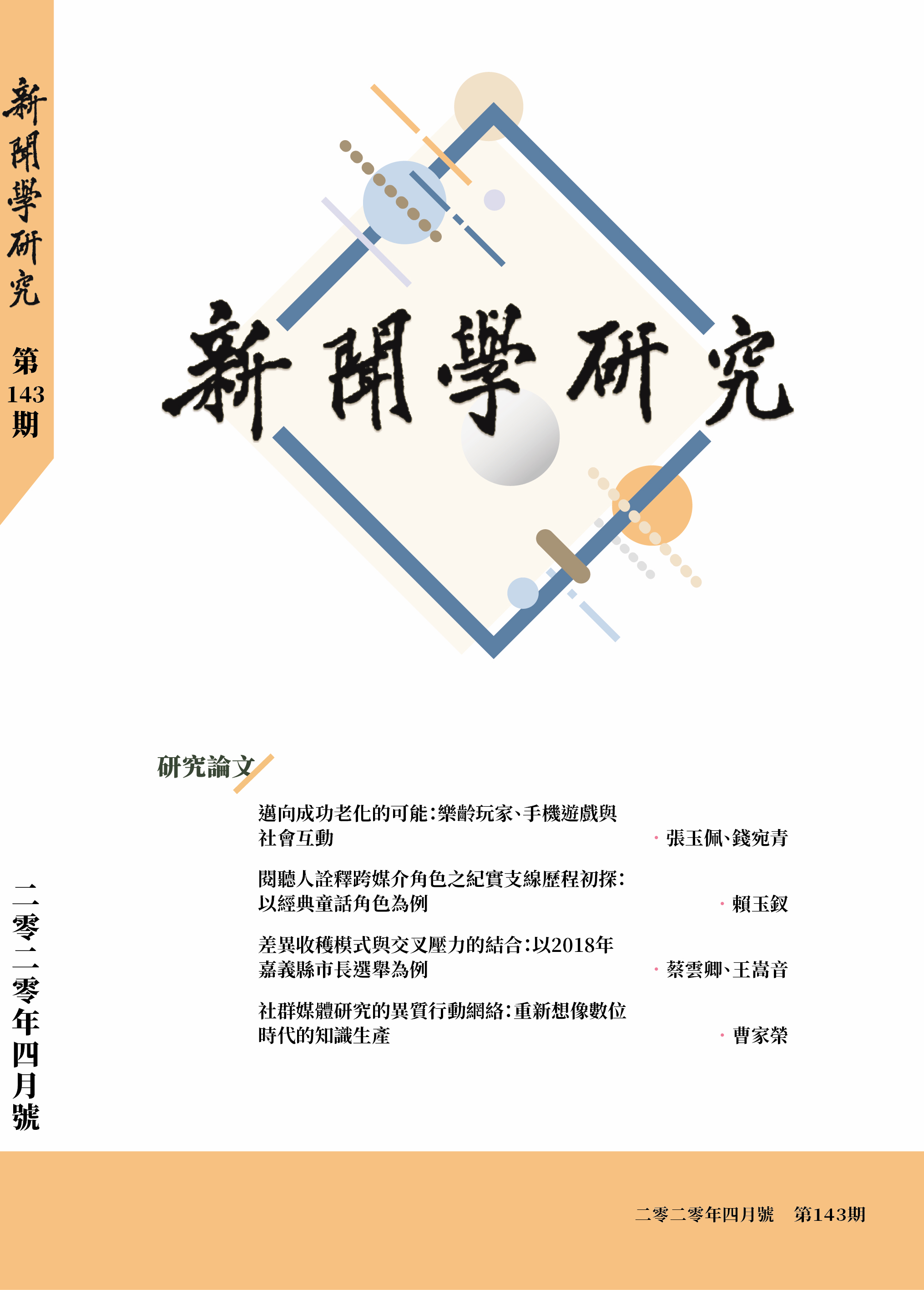前期出版
前期出版
頁數:167﹣214
社群媒體研究的異質行動網絡:
重新想像數位時代的知識生產
The Heterogeneous Actor-Network of Social Media Research: Reimaging the Production of Knowledge in the Digital Age
研究論文
作者(中)
曹家榮
作者(英)
Chia- Rong Tsao
關鍵詞(中)
社群媒體研究、後人類、混雜網絡、數位人文、數位工具、數位社會學
關鍵詞(英)
digital humanities, digital sociology, digital tools, hybrid network, posthuman, social media studies
中文摘要
本研究透過新物質主義的視野,反思社群媒體研究的跨領域實作與協作。近年來,大數據及相關數位工具正改變著人文社會科學的知識生產,不管是在數位社會學或是數位人文研究的發展中,都可以看到人文社會學者、資科學者與數位工具三者間密切合作的趨勢。到目前為止,針對這類跨領域研究的反思,除了聚焦在方法或方法論上的客觀性、有效性問題,亦有認識論層次上的探問。本研究則是嘗試進一步追問「認識如何可能」的過程問題,也就是追問人文社會學者、資料科學家與數位工具三者間是如何互動、協作以生成相關的知識成果?以新物質主義的理論為基礎,本研究將這一知識生產的過程看作異質組裝的網絡,並以兩個社群媒體研究團隊為案例,分析團隊的生成、跨領域協作之過程,同時也著眼於作為非人行動者的數位工具之行動。本研究主張,不論數位工具是一種「恩惠」還是「隱憂」,重新將知識生產過程想像為「異質行動網絡」,才能夠有助於研究者更深入地反思這一過程,進而也才能讓數位時代的知識生產有更踏實的基礎。
英文摘要
This research examines the interdisciplinary practices and collaborations of the social media literature from the perspective of the new materialism. Big data and related digital tools are changing the format of knowledge production among the humanities and social sciences. Moreover, the development of digital sociology and digital humanities shows the clear trend of collaboration between social scientists (or humanists), data scientists, and digital tools. A reflection of this kind of interdisciplinary research focuses mainly on the problem of methods and methodology, but some works also probe epistemological questions. This research instead explores the practices and collaborative processes of knowledge production that involve the interaction between social scientists (or humanists), data scientists, and digital tools. Based on the new materialism, the process is seen as a network assembled by heterogeneous elements including both humans and non-humans. We thus discuss how an interdisciplinary research team is enacted, how researchers from different disciplinary backgrounds collaborate with each other, and how digital tools as non-human actors act and interact with researchers? The discussion is based on two cases of social media research teams in Taiwan. In the end, we argue that, before judging the digital tool, no matter as “a favor” or as “a burden”, one must reconsider the whole process of knowledge production by treating it as a hybrid network assembled by heterogeneous activities. In this way, we are able to know more about the relationships among different “actors” and what they actually do, hence making the knowledge production of this digital era even more solid.
4511次下載



